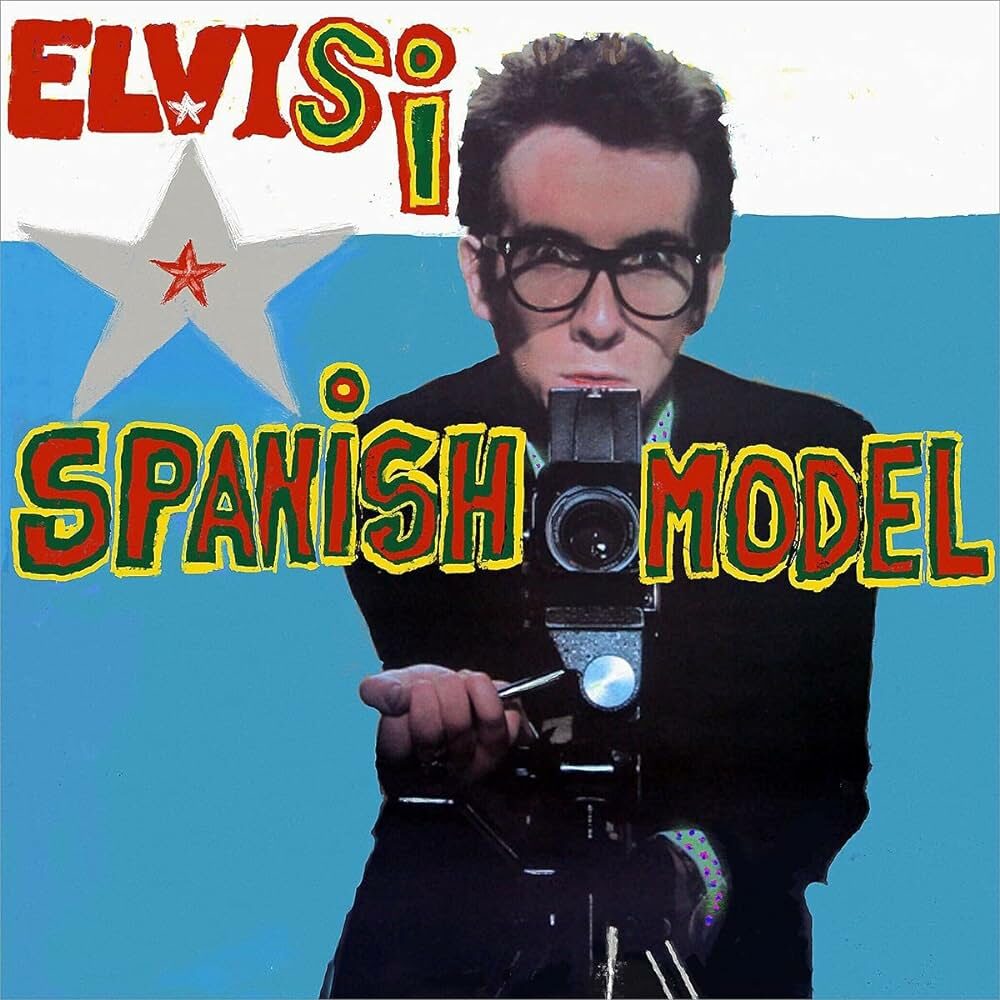Legendary rock weirdo Elvis Costello has worn many hats in his career. From his sneery punk/new wave days, he’s since explored soul, country, classical, jazz, and more. He’s released collaborative albums with Burt Bacharach and The Roots and even produced the first album by The Specials. In the fall of 2021, he released maybe his most unusual project to date: a complete reimagining of his seminal 1978 record This Year’s Model using lyrics translated into Spanish and sung by a diverse collection of vocalists from Latin America and Spain, mixed over the original master recordings from the record played by his erstwhile backing band, The Attractions. Why? Who knows with Elvis? He had previously recorded a duet version of “This Year’s Girl” for HBO’s The Duece and was struck by how a different voice gave the song new colors. From there, it was just a hop, skip, and jump to imagining how the whole record would sound in a different language, albeit one that Costello doesn’t speak.
So how did he do it? With the help of his collaborator and producer, Sebastian Krys, Costello reached out to musicians and songwriters who work in Spanish to translate (and, in some cases, update) his original lyrics. The resulting vocal tracks were mixed over the still incredibly powerful instrumental tracks from This Year’s Model. The Attractions were at the top of their game, and their music is still as intoxicating as it was in 1978. Steve Nieve (keyboards), Bruce Thomas (bass), and Pete Thomas (drums) still have nothing to be ashamed of.
The vocals, on the other hand, are like a fresh coat of paint on a classic car. Costello has never been the greatest singer, but his nervous, twitchy energy propelled his songs. The new versions of the songs provide more robust vocals while retaining the attitude and providing new textures. The new versions of the songs are not word-for-word translations, as the Spanish lyrics are written to fit the original melodies, sometimes changing the song’s meaning. “Radio Radio,” for example, sung here by Argentine Fito Paez, becomes a song about the power of music instead of the original’s 1984-esque paranoia. Half the songs feature female singers, a bold choice for songs about being an angry young man. Some songs, like “Little Triggers” (reimagined as “Detonantes” by Mexican-American singer La Marisol), still work when sung by a woman. “This Year’s Girl” (reimagined as “La Chica De Hoy” by Chilean singer Cami) switches the singer’s perspective from the consumer to the girl herself. The songs sound the same, yet different. It doesn’t always work but it’s a weird and exciting experiment.
Does this portend another stylistic shift for the second-greatest musical Elvis? Unlikely. Will this inspire other musicians to rework classic records in new languages? I doubt it. It’s probably too late for Bob Dylan to put out a Russian version of Blonde on Blonde. Spanish Model will likely be another footnote in Costello’s storied career, but it’s a career all the more memorable for the chances it has taken.




